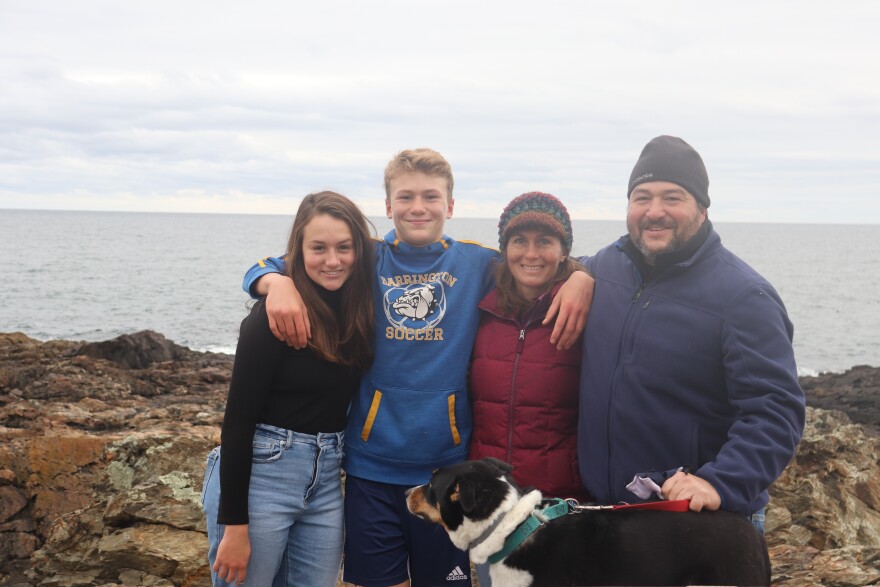As of this week, nearly all schools in New Hampshire have fully reopened. Until now, it’s been a patchwork of different reopening plans, depending on the district. And for the Scopel Shofner family, in Barrington, it’s been a complicated year: the parents work at two different high schools, while their two kids go to other schools — each with a different approach to the pandemic. I checked in with that family via Zoom last night.
Melinda Shofner is a college counselor at Winnacunnet High School in Hampton, where they were remote in the fall, and fully in person for the last month.
Her daughter, Maia, is just starting full-time at Oyster River High School this week, after being in remote and hybrid models since the pandemic began.
“I just have to switch my brain to do normal school again, because I haven’t done it in a year,” she says.
"I get angry because I feel like when it was working, we didn't pivot."
Maia’s brother, Max, goes to Barrington Middle School, which has been fully open since August.
“We’ve been totally in school with masks on and everything — which now I forget we’re even wearing one because I’m so used to it by now,” he says.
The dad, Darren Scopel, is a high school science teacher in Rochester, which has also been fully open much of the year. And the differences in every school’s pandemic approach has been the topic of conversation, at dinner.
“And before dinner, and after dinner and on the phone,” Darren laughs. “So there was a lot — we’re dealing with different parts of it, four different schools.”
Darren says he understands that every school has unique hurdles — some have bad ventilation, others don’t have enough room for social distancing. But Melinda wishes they’d all been able to reopen months ago, as more research was showing that with proper safety measures, schools could keep transmission of COVID-19 low.
“I get angry,” she says. “I get angry because I feel like when it was working, we didn’t pivot. There was no — ‘Hey, there’s more information now. The data is coming in and it’s showing that schools can do this.’ And the importance of getting students back into school for wellness, mental health and education — all of those things, and there was just no change for months. And I’m still frustrated. We can’t get that time back.”
I’ve heard this from other families — even as schools reopen, there’s frustration over how some students got a semi-normal year, while others missed out. Maia is thrilled to be back in school but says she picked up some bad habits when she was doing school at home alone, feeling overwhelmed and lonely.

“The biggest difference in going into school is that I’d be 10 minutes into class and I would want to pick up my phone or I’d want to draw something or do something else because my attention span has gotten so ruined being at home,” she says.
“And, I mean think TikTok is also …” Maia pauses and looks at her dad, who is laughing. “But that’s a big platform that everyone’s using, it’s not like an unknown thing!”
Some of Maia’s friends are choosing to stay remote for the rest of the year. Melinda and Darren also have students who have opted for remote learning. Darren thinks most of them would learn more in his classroom.
“But there are a few kids that excel and I have had probably two or three percent of my kids who when I had in person, not doing well. But when they went remote, they did better,” he says.
Melinda, the college counselor, worries about how strange life is for her students in the class of 2021, especially those planning for college.
“The class of 2020 got a lot of attention for losing kind of the end of their senior year. But these seniors this year — they didn't get the college visits, they didn't get the summer before, then the application season they were very disconnected,” she says. “And even now they’re getting onto campuses sometimes for the first time just when they’re about to make decisions.”
As for Maia, a junior, she’s excited for what she calls “the little things” — seeing her friends, connecting with teachers, and relearning how to be in school.
This story is part of NHPR's COVID & The Classroom reporting project.









